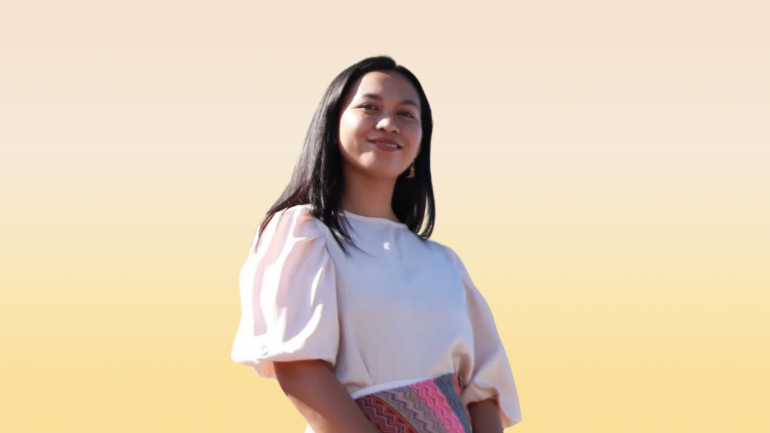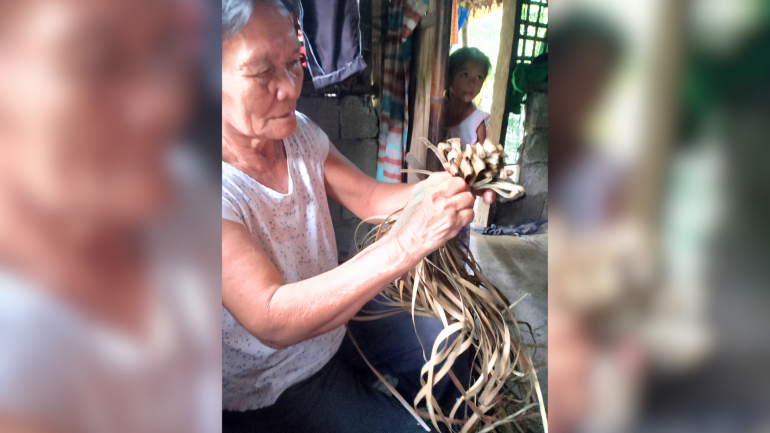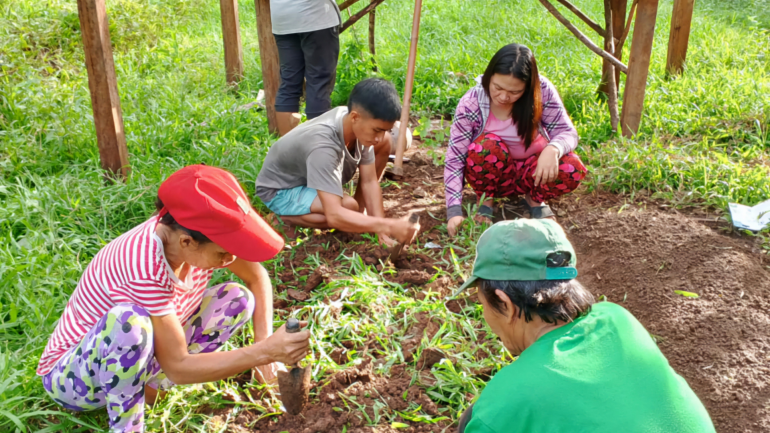Young Filipina creates hope for weavers in the Philippines
Women in Alojipan, a village in the mountainous section of Culasi town in Antique, weave strips of bariw into sleeping mats and sell them to supplement the income that their husbands generate from growing crops and manual labor.
Bariw, a screw palm, thrives in parts of the Philippines, like Antique, a coastal province in the western segment of Panay Island, more than 1,200 kilometers southeast of Manila, the country’s capital, by air.
Sharmaine Moises Blas, 26, a Creators of Hope 2024 grantee, visited and consulted these women in their upland village, learning stories surrounding the condition of people in the community in the process.
She learned some farmers leave their crops for some time to work in other places, like Negros, an island east of Panay Island.
Despite the income generated from crops and the wages earned outside the village, the farmers still face economic challenges, especially in terms of medical and their children’s educational expenses.
“The women wish for an alternative and sustainable livelihood aside from farming since the warming of the environment affects their harvests,” she said.
The potential of bariw to generate more income that Sharmaine saw prompted her to seek assistance outside Culasi to empower these women by equipping them with additional and upgraded bariw weaving skills.
Aside from sleeping mats, the strips of the blade-like bariw leaves can be woven into other crafts that can generate more income for the women in the village.
Known as ‘Through her Hands: Women Weaving Stories, Craft, and Restoration,’ Sharmaine proposed her project to the Creators of Hope, an undertaking of the Jesuits in the Asia Pacific since 2010 through its Reconciliation with Creation network.
“The project is for women and mothers in the upland barangay,” she said. “We hope to create for them sustainable livelihoods using natural resources available in their community. The women weave the bariw into mats. We will enhance that skill and their product and provide them with additional skills in bariw weaving.”
Early in 2024, the Creators of Hope granted Sharmaine financial aid for the training of these women on weaving bags, baskets, hats, table mats, and other bariw crafts. The fund, amounting to US $2,000 for one year, would be used for the training.
The women weave sleeping mats but do not yet have the skill for making bags and other bariw crafts.
Sharmaine would tap people proficient in weaving different bariw crafts to provide the women with skills.
One of the nearest markets for the bariw products is Boracay, a premier ecotourism destination in the country internationally famed for its fine white sand beaches, located in Antique’s neighboring province of Aklan.
Sharmaine is also looking at collaborating with the tourism office of Culasi on promoting and marketing the products. Tourists can display the bariw products at Culasi's tourist sites, including Mararison Island.
Aside from helping provide skills and sustainable livelihood, Sharmaine also engages the women in the village in the forest restoration that the local youth are currently undertaking.
The women in the village had already trained in making fertilizers that harness natural materials as components, like the madre de cacao leaves, in 2024. The women had also trained in making organic pesticides for plants using ginger, onion, garlic, and vinegar.
The women plant and grow crops in their gardens, like peppers, squash, peanuts, water spinach, and other vegetables. The crops planted and grown depend on the season.
The women in the village are at the forefront of forest restoration as they grow plants in their respective backyards. Aside from their gardens, these women are also in charge of community gardens, which are also part of forest restoration.
The project is seen to slow down and eventually address illegal logging, poaching, charcoal making, and other activities to generate money that are destructive to nature.
In 2022, the Reconciliation with Creation searched for young individuals involved in environmental advocacy, offering grants. Their grantees are known as Creators of Hope.
“I’m hoping this project will become sustainable since it is aligned with the restoration of the forest,” she said. “We hope the women will eventually take ownership of the project. That’s the goal. We will provide support, including sourcing funds if necessary."
Sharmaine is a graduate of Bachelor of Science in Management from the University of the Philippines-Visayas.
Radio Veritas Asia (RVA), a media platform of the Catholic Church, aims to share Christ. RVA started in 1969 as a continental Catholic radio station to serve Asian countries in their respective local language, thus earning the tag “the Voice of Asian Christianity.” Responding to the emerging context, RVA embraced media platforms to connect with the global Asian audience via its 21 language websites and various social media platforms.



















